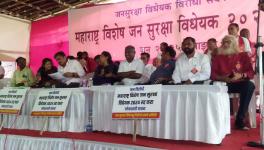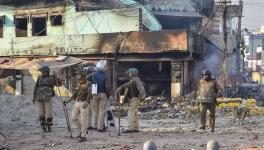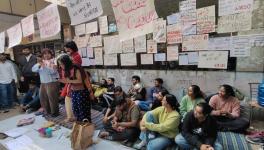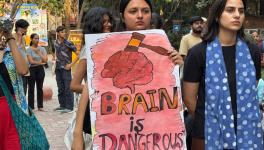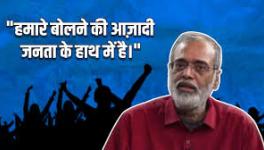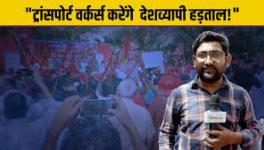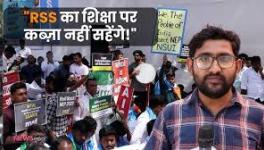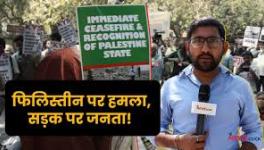Delhi Riots Probe Reminds of Bhima Koregaon, Gujarat Violence, Say Activists

Image Courtesy: DNA India
The ongoing police probe into February riots that left Northeast Delhi smouldering reminds of the investigation processes in cases related to Bhima Koregaon and 2002 Gujarat violence, activists alleged, adding that similar to the later ones an attempt is underway to turn the narrative of Delhi riots on its head.
In a joint virtual press conference on Thursday, eminent personalities including human rights activists and political figures accused the Delhi Police of “targeting” the ant- CAA protesters by “framing them under false charges”. This is when the FIRs against BJP leaders for inflammatory speeches have not been registered, even after almost three months of them allegedly inciting violence.
“Delhi Police, under the name of investigation, is attempting to turn the whole narrative on its head. The students who were engaged in peaceful protests are now being targeted, while those who instigated violence are not being questioned,” Delhi University professor Apoorvanand said.
He added that the way in which the probe into February riots is being carried forward reminds him of similar tactics that were used to target social activists after the Bhima Koregaon violence. “A fictitious plot involving a conspiracy was written then and those who had no connection to the violence were put behind the bars under stringent laws,” Apoorvanand alleged.
Two months after the violence erupted in the Northeast region of Delhi, Unlawful Activities (Prevention) Act (UAPA) was invoked against at least five including former JNU student Umar Khalid, RJD’s youth wing president Meeran Haider and JCC’s media coordinator Safoora Zargar among others.
“Bulk FIRs and mass arrests by Delhi Police in connection to February riots reminds [one] of 2002 when during the investigations into Gujarat violence such FIRs were registered and mass arrests were carried out – which majorly targeted one community,” Teesta Setalvad, a civil rights journalist, said.
Indian Express had earlier reported that as many as 800 arrests were made till mid-April in connection to the northeast Delhi riots. Through such mass arrests, among whom majority belong to the Muslim community, the police are onto creating an environment of fear, according to Setalvad. “The educated and democratic leaders who rose from within the Muslim community in recent times are being warned to not raise demands for equality.”
The alleged ‘witch-hunt’ by the Delhi Police also comes at a time when the country is struggling to battle the coronavirus outbreak, and is reeling under pressure of virus-induced lockdown.
However, the imposition of movement restrictions has not stopped Delhi Police from continuing its investigation, despite as many as 110 policemen having tested positive for COVID-19. Among those who tested positive, is also an inspector who has been part of the Northeast Delhi riots probe.
“The police investigations amid lockdown are highly questionable,” said Kavitha Krishnan, Secretary of All India Progressive Women’s Association (AIPWA) and politburo member of CPI-ML. “At a time when the jails are being directed to release prisoners, Delhi Police are conducting inquiries and arresting innocents, putting them at a risk of getting infected by the virus.”
Similarly, senior advocate Prashant Bhushan raised the issue of holding the police accountable for their action even though the courts are not functioning properly—conducting case hearings through video conferencing, owing to nationwide lockdown.
On Wednesday, Delhi High Court issued a notice to the Centre and state government in Delhi on a petition filed alleging illegal detention under UAPA, due to non functioning of NIA courts amid lockdown.
Calling such arrests amid lockdown as “malafide actions”, Bhushan said “the police must be answerable” and demanded setting up a high-level enquiry committee to look into the same.
Get the latest reports & analysis with people's perspective on Protests, movements & deep analytical videos, discussions of the current affairs in your Telegram app. Subscribe to NewsClick's Telegram channel & get Real-Time updates on stories, as they get published on our website.









